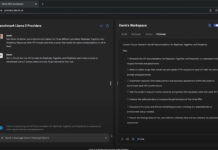Wake-up call for schools who are not offering captions for their MOOC content.
MIT and Harvard University are facing two federal class action lawsuits filed by the National Association of the Deaf (NAD) and four deaf and hard-of-hearing individuals, claiming the universities failed to caption a vast array of online content, including MOOCs.
The cases, filed in U.S. District Court in Massachusetts, assert that MIT and Harvard violate the Americans with Disabilities Act and the Rehabilitation Act by denying deaf and hard of hearing people access to thousands of videos and audio tracks that each university makes publicly available for free.
“This lawsuit is part of our battle for full access to online media content,” explained Howard A. Rosenblum, NAD’s Chief Executive Officer. (Watch above’s video).
The non-captioned content includes campus talks by President Barack Obama and Microsoft founder Bill Gates, educational videos made by MIT students for use by K-12 students, “self-help” talks, entire semesters’-worth of courses and regular podcasts such as the “HBR IdeaCast” by the Harvard Business Review.
With this lawsuit the message to large universities is loud and clear: you should make accommodations for people with disabilities and online course material should be accessible. Entire groups of people cannot be excluded.






















